How to Battle Fatigue
A grim fact: Fatigue overwhelms people in America like an advancing juggernaut. Two-fifths of Americans confess to experiencing fatigue most of the week. This tiredness epidemic could be caused by disease, alcohol and drug abuse, too many side effects of prescriptions, and obesity.
But the leading cause of chronic fatigue is a lack of deep, restorative sleep. 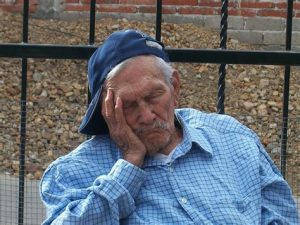 This is often due to not making sleep a priority. People often brag about how little sleep they get on a regular basis; being tired has become the new norm for many.
This is often due to not making sleep a priority. People often brag about how little sleep they get on a regular basis; being tired has become the new norm for many.
However, if these sleep-deprived folks could see what is happening inside their bodies due to a lack of sleep, they would be horrified. The effects of fatigue are far-reaching and can have an adverse impact on all areas of our lives.
The effects of chronic insomnia are many, and none of them are beneficial. For example, accidents increase as a result of tiredness. It is estimated that reduced employee productivity costs employers between $1,200 to $3,100 per employer annually and adds up to $136 billion a year! If that weren’t bad enough, consider the health issues that lack of sleep generates: Cardiovascular disease, obesity, depression, diabetes, and many more.
So what to do about this problem?
In desperation, many people resort to swallowing handfuls of pharmaceutical and over-the-counter pills and guzzling can after can of energy drinks. But these approaches are, at best, short-term fixes, and their impact diminishes over time. The good news is there are many ways to healthfully rejuvenate to get you through your daily tasks.
“There are a number of ways that we can boost our energy, including focusing on the right combination of foods and the timing of meals and snacks,” said registered dietitian nutritionist Elizabeth DeRobertis, the director of the Nutrition Center at Scarsdale Medical Group, White Plains Hospital.
To feel energetic, checkmate the energy saboteurs. Insomnia and increased stress can sap your energy, according to Yasi Ansari, registered dietitian nutritionist, and Academy of Nutrition and Dietetics spokesperson. Here are a few suggestions to give your energy levels a much-deserved boost:
- Get adequate sleep. This is number 1! According to experts, getting sufficient, high-quality sleep is crucial to energy levels. Research has linked a lack of sleep with elevated insulin resistance, which can lead to diabetes. While more studies are needed, the consequence of insomnia can affect glucose metabolism and decrease energy throughout the day. This triggers
 hunger in a futile effort to stay energized but ultimately leads to more weight gain – something most folks don’t need. While adequate sleep is typically considered seven to nine hours for the average person, Ansari states that athletes and other super-active folks may need more. Before retiring, turn off your devices, limit the amount of light in your bedroom, lower the temperature, and make sleep a priority.
hunger in a futile effort to stay energized but ultimately leads to more weight gain – something most folks don’t need. While adequate sleep is typically considered seven to nine hours for the average person, Ansari states that athletes and other super-active folks may need more. Before retiring, turn off your devices, limit the amount of light in your bedroom, lower the temperature, and make sleep a priority. - Prioritize protein. Including a healthy protein source at meals sustains people for longer, as it takes our bodies longer to break down protein, DeRobertis said. “I often ask my patients if they feel more satiated and have more energy after eating a higher carb breakfast or a higher protein breakfast,” she said. “The higher carb breakfast is often something like cereal or a bagel, and the higher protein breakfasts often contain eggs. Most often, they say they feel better after having the eggs versus the higher carb breakfast, as (the eggs) holds them over for longer and they feel more stable.” Adding protein also contributes different tastes to the energy boost. “Think an apple with peanut butter or yogurt with fresh berries,” said Melissa Majumdar, Atlanta-based registered dietitian and certified obesity and weight management specialist.
- Eat small meals every 3 to 4 hours. “People feel like they have more energy when they eat something every three hours or so during the day,” said DeRobertis, who is also the creator of the GPS Weight Loss Program, an online weight loss program. Going too long without eating can cause a
 drop in energy, according to DeRobertis. “I generally recommended that the average person eat every three to four hours,” Ansari added. “That is what is typically seen when it comes to hunger starting to present itself.” Of course, how often you should eat varies from person to person. “It is important to listen to your own hunger and fullness cues to determine the right way to space out your food,” said DeRobertis. If you are very active, you might find yourself hungry more often. “Someone who is taking part in more physical activity or is constantly on the go may need to be eating more frequently, such as every two to three hours,” Ansari said.
drop in energy, according to DeRobertis. “I generally recommended that the average person eat every three to four hours,” Ansari added. “That is what is typically seen when it comes to hunger starting to present itself.” Of course, how often you should eat varies from person to person. “It is important to listen to your own hunger and fullness cues to determine the right way to space out your food,” said DeRobertis. If you are very active, you might find yourself hungry more often. “Someone who is taking part in more physical activity or is constantly on the go may need to be eating more frequently, such as every two to three hours,” Ansari said. - Load up on fiber. “Foods high in fiber like fruit and whole grains provide energy from carbohydrates, which is the quickest fuel source for your body. The fiber slows the energy stream down, like a dam, instead of simple carbohydrates that flood the body with sugar,” said Majumdar, who is also the metabolic and bariatric coordinator at Emory University Hospital Midtown. “In other words, carbohydrate foods high in fiber provide long-lasting energy.” Eating too many refined carbohydrates in a sitting without having any fiber or protein to slow rises in blood sugar can contribute to reactive hypoglycemia, where our blood sugar spikes and crashes, which can cause an energy crash, according to DeRobertis. Oatmeal with berries and an ounce of nuts or a whole-grain English muffin with two tablespoons of almond butter are good examples of fiber-rich carbs, Ansari said.
- Snack smartly. Another way to ensure your energy flows throughout the day is to eat nutrient-dense foods rather than foods with empty calories. “If we had two snacks to choose from, and they both had the same number of calories, but one had more protein and more fiber, there is a good chance
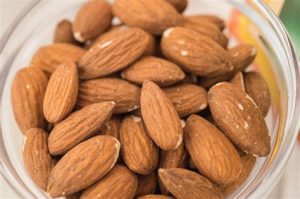 that (the protein and fiber-rich snack) will give us more energy and hold us over longer than the snack that is not as nutrient-dense,” DeRobertis said. Think about the results of having a bag of potato chips instead of a handful of nuts, Greek yogurt, or fruit. “The nuts, fruit, and yogurt each have so much more to offer in terms of nutrient density that they will provide you with more energy than empty calorie snacks like pretzels or chips or cookies,” she said.
that (the protein and fiber-rich snack) will give us more energy and hold us over longer than the snack that is not as nutrient-dense,” DeRobertis said. Think about the results of having a bag of potato chips instead of a handful of nuts, Greek yogurt, or fruit. “The nuts, fruit, and yogurt each have so much more to offer in terms of nutrient density that they will provide you with more energy than empty calorie snacks like pretzels or chips or cookies,” she said. - Minimize caffeine. Caffeine can help boost short-term mental performance and provide an energy spike, but it is a short-term fix that can evaporate quickly, leaving you more fatigued. “Aim for a moderate amount of 200 to 300 milligrams of caffeine per day, which is the amount in about two cups of brewed coffee,” Ansari said. “There is nothing wrong with starting the day with some caffeine as a ‘pick me up,’ but if you find you rely on multiple cups of coffee spaced out during the day to maintain your energy level, you may want to take a look at how you are spacing out your food intake as well as your hydration level,” DeRobertis added.
- Get off that couch! Working out can boost your energy levels, according to DeRobertis. This occurs for several reasons: For one, you produce more feel-good hormones, known as endorphins; plus, you also increase your heart’s pumping volume, which strengthens circulation. “Your cells become more sensitive to your insulin, so your blood glucose becomes more stable,” DeRobertis said.
- Don’t forget to drink water. Not drinking enough water can prevent us from being energized. “Inadequate fluids can cause the heart to work harder to help support blood flow, and this can cause fatigue,” Ansari said. She said that inadequate hydration could wreak havoc with our metabolism and the
 delivery of nutrients throughout the body, which blocks us from feeling sharp and energized. “If we are even the slightest bit dehydrated, it can decrease our energy level,” DeRobertis added. To see if you are well hydrated, check the color of your urine. You should feel the need to urinate every few hours during the day, and urine should be clear in color, according to DeRobertis.
delivery of nutrients throughout the body, which blocks us from feeling sharp and energized. “If we are even the slightest bit dehydrated, it can decrease our energy level,” DeRobertis added. To see if you are well hydrated, check the color of your urine. You should feel the need to urinate every few hours during the day, and urine should be clear in color, according to DeRobertis. - Control stress. Undoubtedly, stress is the number one threat to good health. Chronic stress kills and, in the process, drains you of energy. It can also cause insomnia and poor sleep quality, which leaves you burnt out, miserable, and cranky and adds more stress – a vicious cycle. Striving for at least seven to nine hours of sleep each night can help to decrease cortisol and stress levels. Finding a hobby you enjoy and listening to music can also help to reduce stress levels. There are several other ways to lower stress – meditation, yoga, prayer, hobbies – experiment and determine what works best for you.
- Make taking care of yourself a top priority. Energy comes from two sources: physical energy and emotional or psychological energy. Before turning towards the afternoon sugar fix, decide if you need a physical boost or an emotional lift. “If you just finished up a hard meeting or grounding the kids, food won’t provide the energy boost you need, but self-care might,” Majumdar said. “Choosing an activity that resets the negative energy can help balance those energy needs. Think a quick walk outside for fresh air, some deep breathing exercises, or a quick dance session.”
https://www.cnn.com/2021/08/14/health/10-energy-boost-tips-drayer-wellness/index.html

- Human Growth Hormone Injections In Cheyenne [Last Updated On: May 25th, 2025] [Originally Added On: October 19th, 2018]
- Human Growth Hormone Injections In Madison [Last Updated On: May 31st, 2025] [Originally Added On: October 19th, 2018]
- Human Growth Hormone Injections In Vancouver [Last Updated On: February 24th, 2025] [Originally Added On: October 19th, 2018]
- Human Growth Hormone Injections In Tacoma [Last Updated On: February 25th, 2025] [Originally Added On: October 19th, 2018]
- Human Growth Hormone Injections In Spokane [Last Updated On: February 26th, 2025] [Originally Added On: October 19th, 2018]
- Human Growth Hormone Injections In Bellevue [Last Updated On: February 26th, 2025] [Originally Added On: October 19th, 2018]
- Human Growth Hormone Injections In Richmond [Last Updated On: May 31st, 2025] [Originally Added On: October 19th, 2018]
- Human Growth Hormone Injections In Portsmouth [Last Updated On: June 1st, 2025] [Originally Added On: October 19th, 2018]
- Human Growth Hormone Injections In Norfolk [Last Updated On: June 1st, 2025] [Originally Added On: October 19th, 2018]
- Human Growth Hormone Injections In Hampton [Last Updated On: March 27th, 2025] [Originally Added On: October 19th, 2018]
- Human Growth Hormone Injections In Chesapeake [Last Updated On: March 27th, 2025] [Originally Added On: October 19th, 2018]
- Human Growth Hormone Injections In Alexandria [Last Updated On: March 28th, 2025] [Originally Added On: October 19th, 2018]
- Human Growth Hormone Injections In Montpelier [Last Updated On: June 2nd, 2025] [Originally Added On: October 19th, 2018]
- Human Growth Hormone Injections In Provo [Last Updated On: June 2nd, 2025] [Originally Added On: October 19th, 2018]
- Human Growth Hormone Injections In Waco [Last Updated On: June 7th, 2025] [Originally Added On: October 19th, 2018]
- Human Growth Hormone Injections In Richardson [Last Updated On: June 5th, 2025] [Originally Added On: October 19th, 2018]
- Human Growth Hormone Injections In Plano [Last Updated On: June 6th, 2025] [Originally Added On: October 19th, 2018]
- Human Growth Hormone Injections In Pasadena [Last Updated On: June 4th, 2025] [Originally Added On: October 19th, 2018]
- Human Growth Hormone Injections In Midland [Last Updated On: June 7th, 2025] [Originally Added On: October 19th, 2018]
- Human Growth Hormone Injections In Mesquite [Last Updated On: June 4th, 2025] [Originally Added On: October 19th, 2018]
- Human Growth Hormone Injections In McKinney [Last Updated On: June 3rd, 2025] [Originally Added On: October 19th, 2018]
- Human Growth Hormone Injections In McAllen [Last Updated On: June 8th, 2025] [Originally Added On: October 19th, 2018]
- Human Growth Hormone Injections In Lubbock [Last Updated On: June 6th, 2025] [Originally Added On: October 19th, 2018]
- Human Growth Hormone Injections In Lewisville [Last Updated On: June 5th, 2025] [Originally Added On: October 20th, 2018]
- Human Growth Hormone Injections In Laredo [Last Updated On: June 3rd, 2025] [Originally Added On: October 20th, 2018]
- Human Growth Hormone Injections In Killeen [Last Updated On: February 18th, 2025] [Originally Added On: October 20th, 2018]
- Human Growth Hormone Injections In Irving [Last Updated On: February 19th, 2025] [Originally Added On: October 20th, 2018]
- Human Growth Hormone Injections In Garland [Last Updated On: February 20th, 2025] [Originally Added On: October 20th, 2018]
- Human Growth Hormone Injections In Denton [Last Updated On: February 21st, 2025] [Originally Added On: October 20th, 2018]
- Human Growth Hormone Injections In Carrollton [Last Updated On: June 8th, 2025] [Originally Added On: October 20th, 2018]
- Human Growth Hormone Injections In Brownsville [Last Updated On: February 21st, 2025] [Originally Added On: October 20th, 2018]
- Human Growth Hormone Injections In Beaumont [Last Updated On: February 18th, 2025] [Originally Added On: October 20th, 2018]
- Human Growth Hormone Injections In Austin [Last Updated On: February 22nd, 2025] [Originally Added On: October 20th, 2018]
- Human Growth Hormone Injections In Arlington [Last Updated On: February 20th, 2025] [Originally Added On: October 20th, 2018]
- Human Growth Hormone Injections In Amarillo [Last Updated On: February 19th, 2025] [Originally Added On: October 20th, 2018]
- Human Growth Hormone Injections In Abilene [Last Updated On: February 22nd, 2025] [Originally Added On: October 20th, 2018]
- Human Growth Hormone Injections In Nashville [Last Updated On: February 27th, 2025] [Originally Added On: October 20th, 2018]
- Human Growth Hormone Injections In Murfreesboro [Last Updated On: February 27th, 2025] [Originally Added On: October 20th, 2018]
- Human Growth Hormone Injections In Memphis [Last Updated On: February 28th, 2025] [Originally Added On: October 20th, 2018]
- Human Growth Hormone Injections In Knoxville [Last Updated On: February 28th, 2025] [Originally Added On: October 20th, 2018]
- Human Growth Hormone Injections In Clarksville [Last Updated On: March 1st, 2025] [Originally Added On: October 20th, 2018]
- Human Growth Hormone Injections In Chattanooga [Last Updated On: March 1st, 2025] [Originally Added On: October 20th, 2018]
- Human Growth Hormone Injections In Erie [Last Updated On: March 29th, 2025] [Originally Added On: October 20th, 2018]
- Human Growth Hormone Injections In Allentown [Last Updated On: March 28th, 2025] [Originally Added On: October 20th, 2018]
- Human Growth Hormone Injections In Salem [Last Updated On: March 2nd, 2025] [Originally Added On: October 20th, 2018]
- Human Growth Hormone Injections In Portland [Last Updated On: March 2nd, 2025] [Originally Added On: October 20th, 2018]
- Human Growth Hormone Injections In Gresham [Last Updated On: March 3rd, 2025] [Originally Added On: October 20th, 2018]
- Human Growth Hormone Injections In Eugene [Last Updated On: March 3rd, 2025] [Originally Added On: October 20th, 2018]
- Human Growth Hormone Injections In Tulsa [Last Updated On: March 4th, 2025] [Originally Added On: October 20th, 2018]
- Human Growth Hormone Injections In Norman [Last Updated On: March 4th, 2025] [Originally Added On: October 20th, 2018]
- Human Growth Hormone Injections In Toledo [Last Updated On: May 27th, 2025] [Originally Added On: October 20th, 2018]
- Human Growth Hormone Injections In Dayton [Last Updated On: May 29th, 2025] [Originally Added On: October 20th, 2018]
- Human Growth Hormone Injections In Columbus [Last Updated On: May 29th, 2025] [Originally Added On: October 20th, 2018]
- Human Growth Hormone Injections In Akron [Last Updated On: May 30th, 2025] [Originally Added On: October 20th, 2018]
- Human Growth Hormone Injections In Paterson [Last Updated On: February 23rd, 2025] [Originally Added On: October 20th, 2018]
- Human Growth Hormone Injections In Reno [Last Updated On: February 24th, 2025] [Originally Added On: October 20th, 2018]
- Human Growth Hormone Injections In Henderson [Last Updated On: February 25th, 2025] [Originally Added On: October 20th, 2018]
- Human Growth Hormone Injections In Omaha [Last Updated On: May 26th, 2025] [Originally Added On: October 20th, 2018]
- Human Growth Hormone Injections In Lincoln [Last Updated On: May 26th, 2025] [Originally Added On: October 20th, 2018]
- Human Growth Hormone Injections In Billings [Last Updated On: May 27th, 2025] [Originally Added On: October 20th, 2018]
- Human Growth Hormone Injections In Springfield [Last Updated On: May 28th, 2025] [Originally Added On: October 20th, 2018]
- Human Growth Hormone Injections In Independence [Last Updated On: June 9th, 2025] [Originally Added On: October 20th, 2018]
- Human Growth Hormone Injections In Columbia [Last Updated On: May 28th, 2025] [Originally Added On: October 20th, 2018]
- Human Growth Hormone Injections In Jackson [Last Updated On: May 30th, 2025] [Originally Added On: October 20th, 2018]
- Human Growth Hormone Injections In Rochester [Last Updated On: February 23rd, 2025] [Originally Added On: October 20th, 2018]
- Human Growth Hormone Injections In Warren [Last Updated On: March 5th, 2025] [Originally Added On: October 20th, 2018]
- Human Growth Hormone Injections In Lansing [Last Updated On: March 5th, 2025] [Originally Added On: October 20th, 2018]
- Human Growth Hormone Injections In Flint [Last Updated On: March 6th, 2025] [Originally Added On: October 20th, 2018]
- Human Growth Hormone Injections In Worcester [Last Updated On: March 29th, 2025] [Originally Added On: October 20th, 2018]
- Human Growth Hormone Injections In Springfield [Last Updated On: March 30th, 2025] [Originally Added On: October 20th, 2018]
- Human Growth Hormone Injections In Lowell [Last Updated On: March 30th, 2025] [Originally Added On: October 20th, 2018]
- Human Growth Hormone Injections In Cambridge [Last Updated On: March 31st, 2025] [Originally Added On: October 20th, 2018]
- Human Growth Hormone Injections In Augusta [Last Updated On: March 6th, 2025] [Originally Added On: October 20th, 2018]
- Human Growth Hormone Injections In Shreveport [Last Updated On: March 7th, 2025] [Originally Added On: October 20th, 2018]
- Human Growth Hormone Injections In Lafayette [Last Updated On: March 7th, 2025] [Originally Added On: October 20th, 2018]
- Human Growth Hormone Injections In Louisville [Last Updated On: March 8th, 2025] [Originally Added On: October 20th, 2018]
- Human Growth Hormone Injections In Lexington [Last Updated On: March 8th, 2025] [Originally Added On: October 20th, 2018]
- Human Growth Hormone Injections In Wichita [Last Updated On: March 9th, 2025] [Originally Added On: October 20th, 2018]
- Human Growth Hormone Injections In Topeka [Last Updated On: March 9th, 2025] [Originally Added On: October 20th, 2018]
- Human Growth Hormone Injections In Olathe [Last Updated On: March 10th, 2025] [Originally Added On: October 20th, 2018]
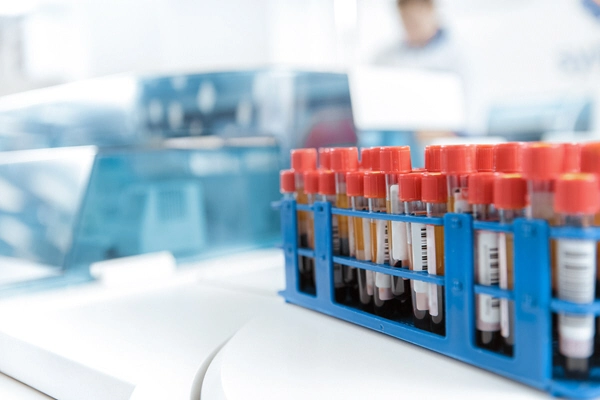
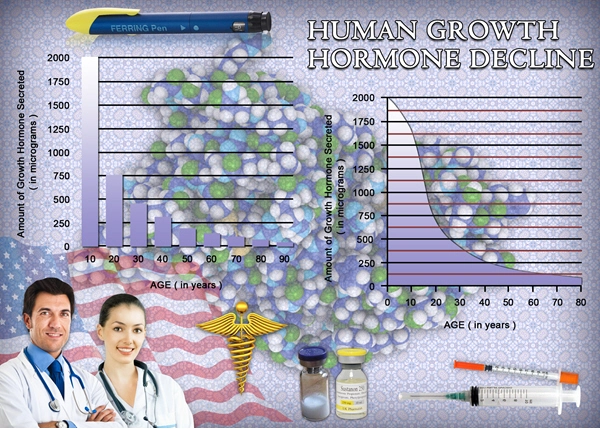
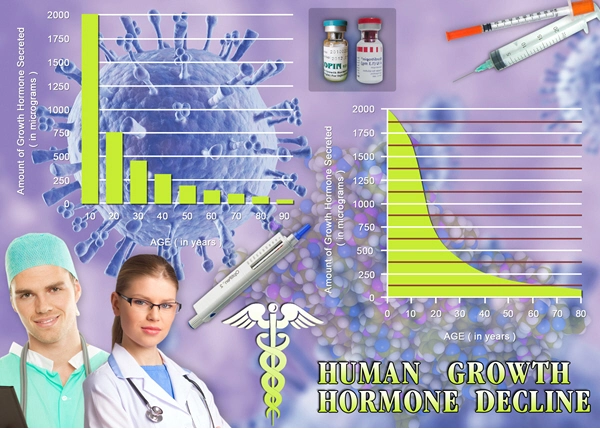
List of USA state clinics - click a flag below for blood testing clinics.
Word Count: 1547


















































